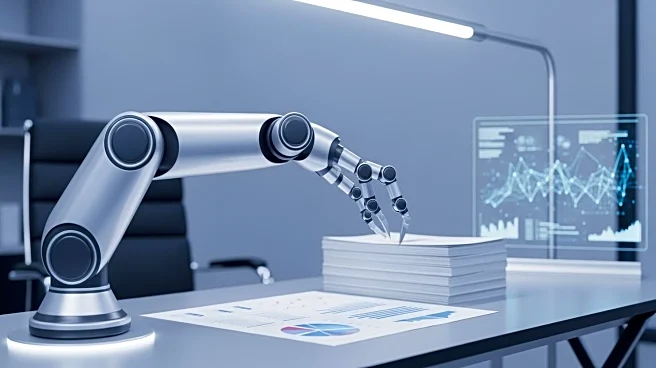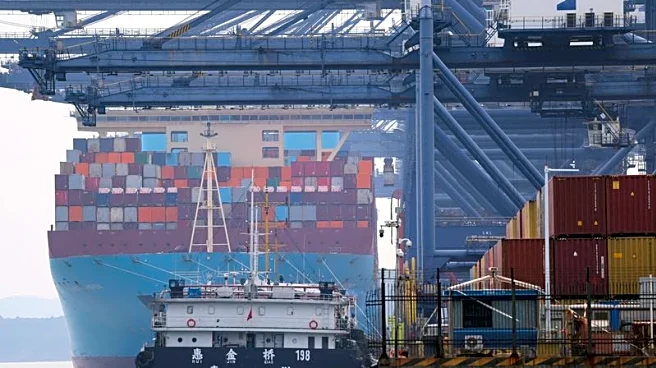What's Happening?
Economists are raising alarms about the potential impact of artificial intelligence on the job market, particularly for white-collar positions. A report from the World Economic Forum estimates that AI, robotics, and automation could displace 92 million
jobs by 2030, while creating 170 million new roles. Major companies like JPMorgan Chase, Goldman Sachs, and Ford are already integrating AI to reduce workforce sizes. Despite these changes, only a small percentage of firms have reported layoffs due to AI, according to recent surveys.
Why It's Important?
The integration of AI into the workforce represents a significant shift in the labor market, with potential implications for job security and economic stability. While AI can increase efficiency and reduce costs for businesses, it also poses a threat to job security for many workers, particularly in roles susceptible to automation. This could lead to increased economic inequality and necessitate new policies to support displaced workers. On the other hand, the creation of new roles in AI development and robotics could offer opportunities for growth and innovation in the economy.
What's Next?
As AI continues to evolve, businesses and policymakers will need to address the challenges and opportunities it presents. This may include investing in workforce retraining programs, developing new educational curricula focused on AI skills, and implementing policies to support workers affected by automation. Additionally, ongoing research and dialogue will be crucial to understanding the long-term impacts of AI on the labor market and ensuring that its benefits are broadly shared.
















